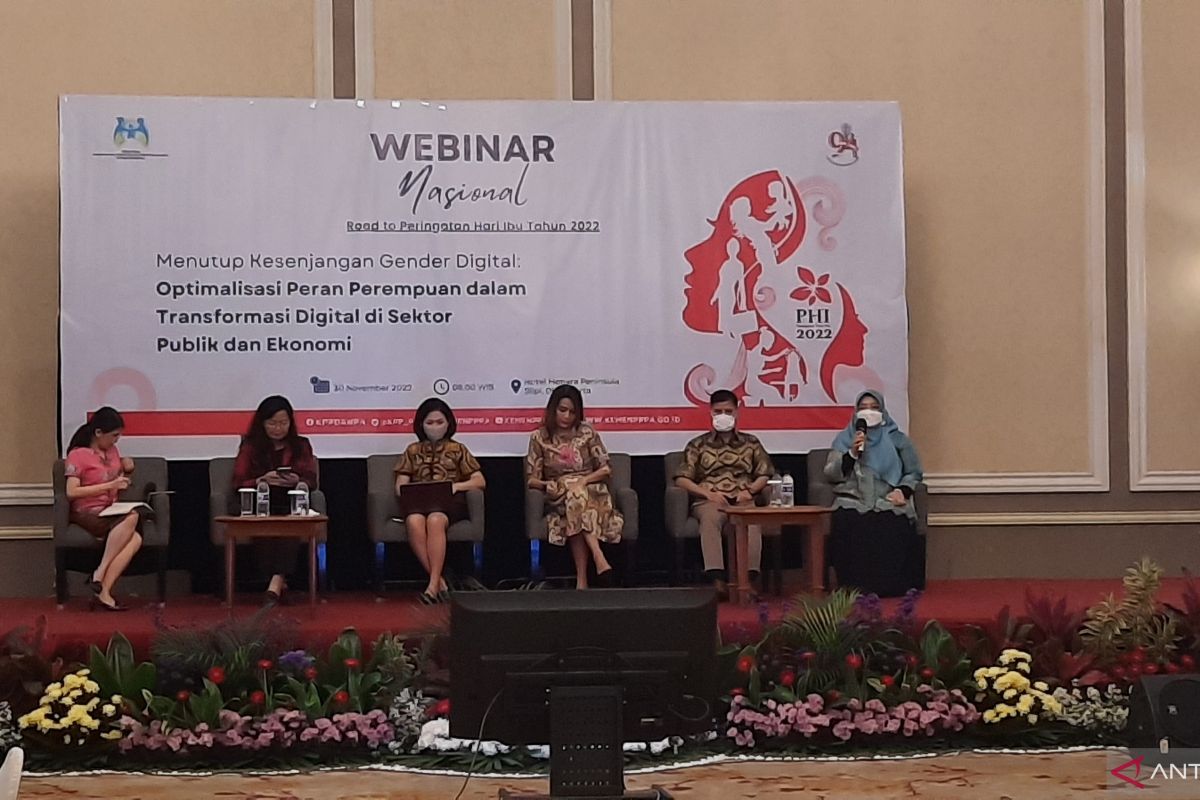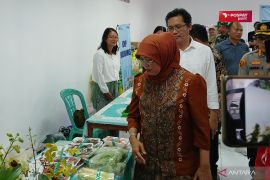Increasing women's empowerment can be a solution to improving child care and education and reducing violence against women and children, child labor, and child marriageJakarta (ANTARA) - Increasing women's empowerment can be a solution to reducing cases of child labor and child marriages, Assistant Deputy for Economic Affairs at the Women's Empowerment and Child Protection Ministry Eni Widiyanti stated.
"Increasing women's empowerment can be a solution to improving child care and education and reducing violence against women and children, child labor, and child marriage," she noted during a discussion titled "Closing the Gender Gap in the Digital World" in commemoration of Mother's Day here on Wednesday.
President Joko Widodo (Jokowi) gave five main directives to the ministry regarding efforts to increase women's participation that are to boost women's empowerment in gender-based entrepreneurship, increase maternal and child care, reduce violence against women and children, lower child labor, and reduce child marriage.
However, she said, in learning and adapting to the digital world, women still face challenges of various policies that have not been in favor of women.
Related news: Equal participation of women, men key for nation's welfare: ministry
These challenges include inadequate access or quality of internet, policies that do not respond to gender issues, the double burden on women, and the rise of gender-based violence in the digital realm.
"These challenges do not arise because women are weak, but often because of the patriarchal culture that places women as a second-class society, so their contributions are still not significant," Widiyanti pointed out.
Based on Indonesia Statistics (BPS), the total female population in Indonesia reaches 133 million out of the total of 273 million Indonesians, and 53.6 percent of this figure constituted women of the productive age.
Related news: Women human rights activists often target of cyberviolence: commission
According to Widiyanti, women have vast potential to help drive Indonesia's development, including the economic sector. However, the percentage of women in directors' positions is only 8.3 percent and CEOs is only 3.1 percent.
"This potential is not only ideas. Studies say that increasing women's potential can produce positive and significant changes and improve people's welfare," she explained.
Related news: Police urged to conduct gender-based sorting of murder cases
Related news: Prosperous mothers will deliver superior future generation: Minister
Translator: Fitra A. Kenzu
Editor: Fardah Assegaf
Copyright © ANTARA 2022












